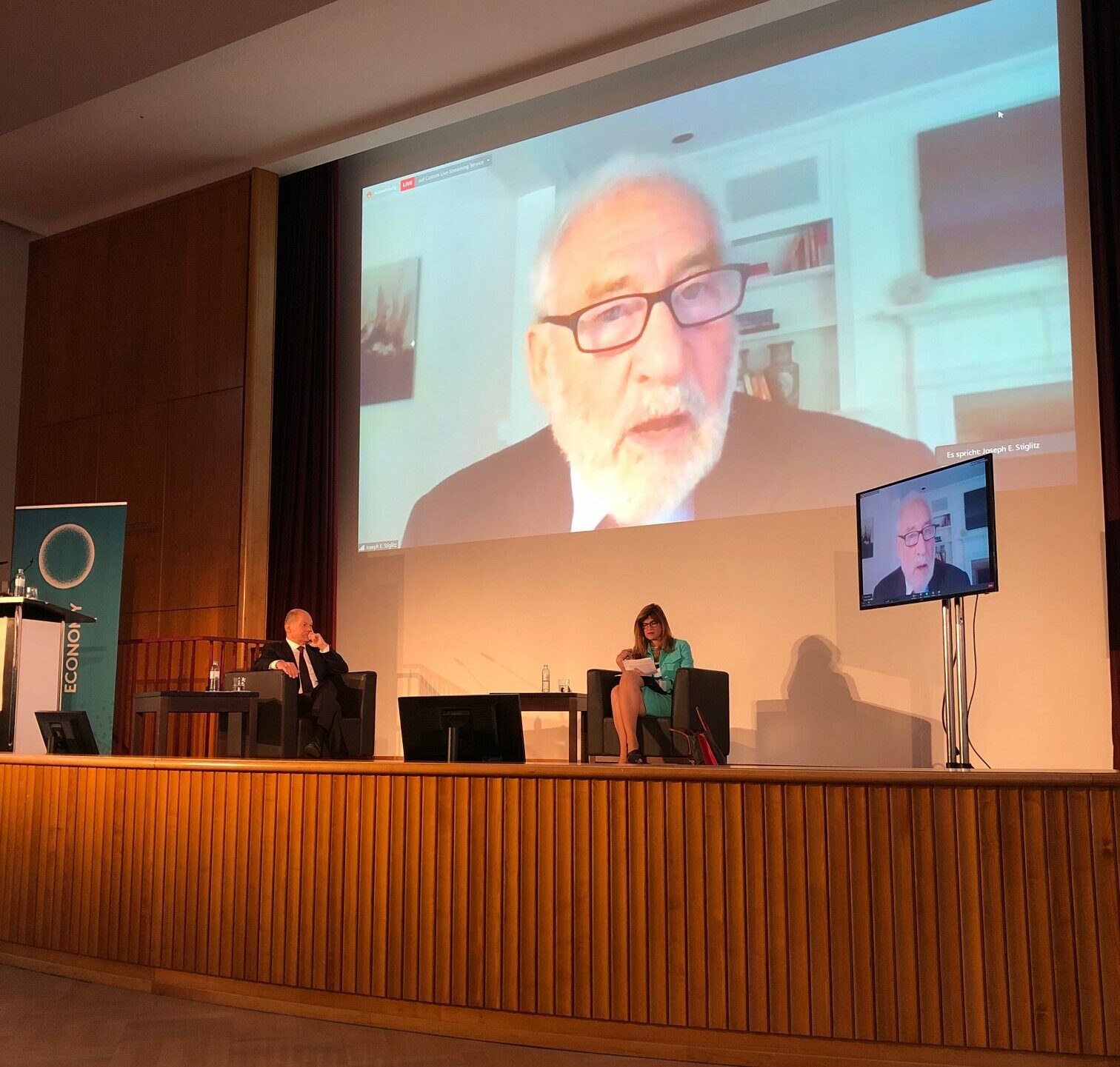THE STATE
Highlights – A Talk between Joseph E. Stiglitz and Olaf Scholz
We summarize the talk at the 7th New Paradigm Workshop between Nobel laureate Joseph Stiglitz and Federal Finance Minister Olaf Scholz from the SPD.
BY
MARC ADAMPUBLISHED
30. SEPTEMBER 2020READING TIME
3 MIN
The second day of the workshop ended with a talk between Nobel laureate and professor of economics at Columbia University, Joseph E. Stiglitz and Federal Finance Minister Olaf Scholz, member of the Social Democratic Party of Germany.
In his opening statement Prof. Stiglitz put forth three points:
– Stiglitz highlighted Germany’s successful response to the corona crisis. The crisis is quickly developed into a massive economic crisis around the globe. And one reason why the situation in the US is much worse than in Europe is because of the European social security system, which the US doesn’t have. Stiglitz remarked that “Germany responded to the crisis with the realization that fiscal policy is essential”
– Stiglitz commented on the European response and argued that there needs to be a larger joint response. There should be more grants than loans and the Eurozone has to tackle the question of how the new debts are going to be redeemed. He suggests that Europe needs a system of progressive taxation
– Stiglitz discussed the potential of future inflation and pointed out that at the moment the problem is massive deflation. Interest rates are zero and monetary policy is largely ineffective. That’s why fiscal policy has to be at the center of the crisis response at the moment. At some time, inflation might arise, but when that time comes, we have ample tools to tackle this problem. This could for example be a financial transaction tax. In any case, both monetary and fiscal policy will be available.
Olaf Scholz responded to Stiglitz’s remarks that Germany reacted very fast to counter the economic crisis. As for Europe, Scholz said that the creation of recovery fund has been a Hamiltonian moment.
Nicola Brandt (OECD, Berlin) who moderated the talk led the discussion to the institutional design and the purpose of fiscal rules. What rules would Stiglitz suggest, if Scholz went to Mount Sinai to receive them? Stiglitz reflected upon the old rules such as max. 60% debt-to-gdp ratio and the 3% deficit rule, which he argued had been made up out of thin air.
Instead, Stiglitz suggested more broad-based rules and argued that there needs to be a new contract between state, markets and civil society. “We have to acknowledge that markets don’t return automatically to full employment and full capacity.”
Scholz added that Germany started out with a debt to GDP ratio below 60%. And although it is now going up to about 75%, it will go down soon on its own simply because of GDP growth. Olaf Scholz pointed out that the economy is recovering much faster than expected.
Turning to Europe Scholz said that Europe needs much better cooperation in taxes, which is why he works hard to push through minimum corporate tax level on the OECD level.
For the US Joe Stiglitz said he is optimistic that in January there will be a new administration that will be more aligned with the notion of curbing tax avoidance and working with other countries around the world to get a more efficient and just tax system. But Stiglitz says the minimum of corporate taxes has to be 25%.
Turning to how much and for what the German and European governments should spent their money, both Stiglitz and Scholz mentioned infrastructure investments to green the economy. Overall, both seemed to agree that there are signs of a paradigm shift and that there is a big role for fiscal policy. However, fiscal policy has to have a vision and should be prudent.
